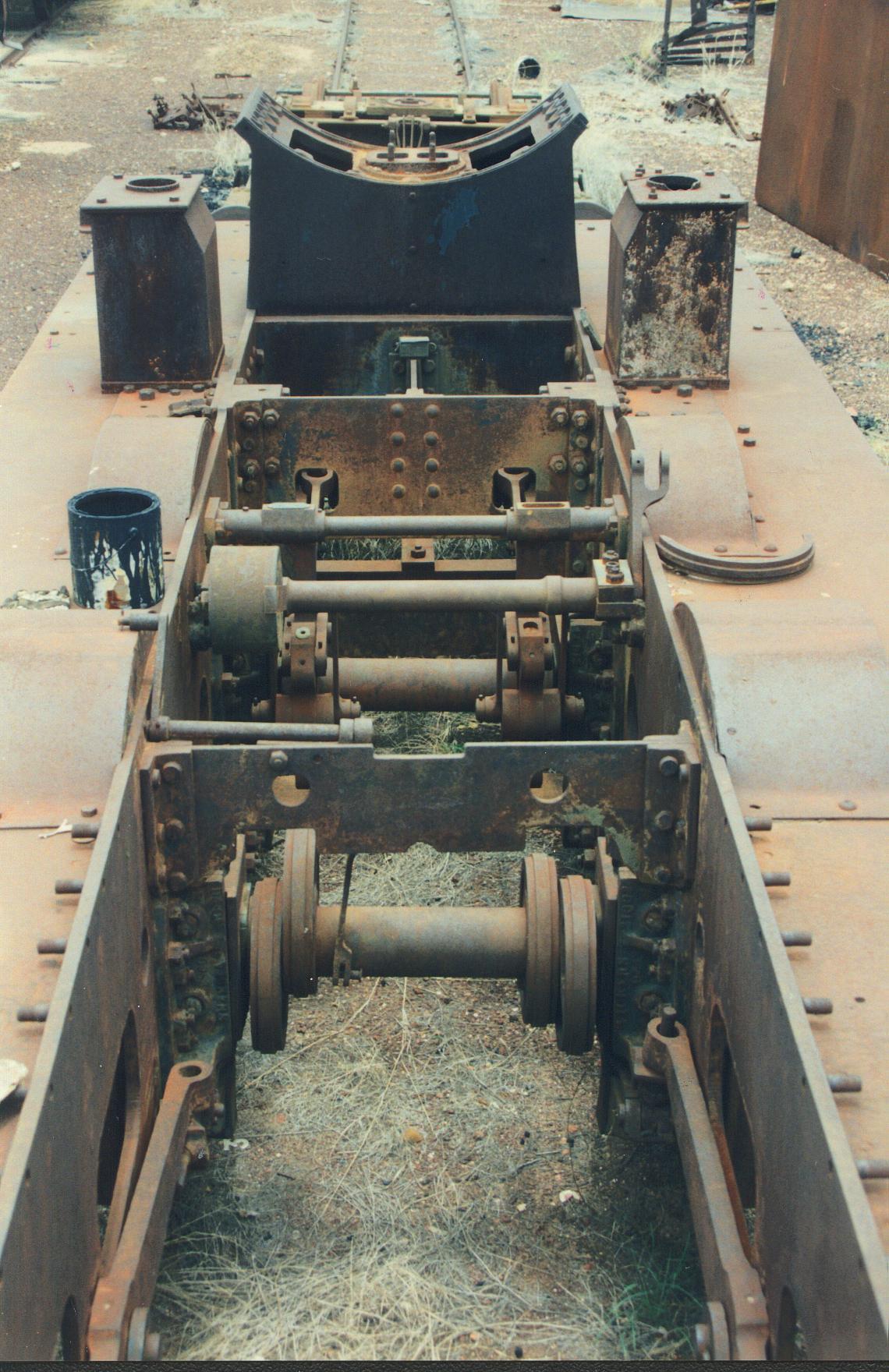|
|
B13 No.234 A fascinating survivor on the Normanton-Croydon Railway |
|
No.234 at Normanton – sans boiler, smokebox & cab – on 4 August 2008. Photo courtesy of Dan Van Scherpenseel.
|
Builder |
Phoenix Engine Co, Ipswich. |
|
|
Builder’s Number & Year |
15 of 1892 |
|
|
Wheel Arrangement |
4-6-0 |
|
|
No. in class |
112 |
|
|
The
B13 class were a mixed-traffic design originating with 19 locomotives
supplied by Dubs & Co, Glasgow. These first 19 locomotives were simple
and reliable machines supplied with saturated steam boilers that sat low in
the frames, with a short smokebox and spartan cab. Following orders from
Kitson, Dubs & Co, and Phoenix Engine Co, Ipswich swelled the class to
112 units by 1892, with the later engines differentiated by a lengthened
driving wheelbase to accommodate larger fireboxes, and associated
higher-pitched boilers. Extended smokeboxes were also found to improve
performance. Firebox variations included ‘wide type’ and ‘deep type’ with the
latter proving more economic, and accordingly the wide firebox engines were
among the earliest B13’s to be withdrawn. Indeed six of the wide firebox B13
locos were sold to the Commonwealth Railways for use on the North Australia
Railway (Darwin) where they were known as the Ng class. Other B13 class
members were rebuilt with deep fireboxes and higher-pitched boilers, with a
characteristic high smokebox saddle (as seen on preserved sister No.48). Most of the B13 class were
withdrawn in the 1920’s and 30’s, with a number being sold into the sugar
industry and local shire tramways. No.234
was the last of the B13 class constructed and was delivered new to the
isolated Normanton - Croydon Railway in July 1892. Like all steam locomotives
sent to Normanton, it never departed and was put to one side after withdrawal
in February 1928. No.234’s original boiler was sent to the Clarina pump in
approximately 1913 where it remains derelict, while a second boiler was
transferred to sister loco No. 161 in 1925. (This implies No.234 was
incomplete and inoperable from 1925 until its official withdrawal date of
February 1928, perhaps coinciding with a decision not to supply a new
boiler.) No.234’s chassis has remained stored in the station yard at
Normanton over the subsequent decades, a testament to the remoteness of this
location. Today
the complete frames, wheels & tender of No.234 remain in storage at
Normanton. Being dismantled does provide an interesting view of the frames
and aspects of the long-wheelbase B13 design and modifications to accommodate
the deep firebox / high-pitch boiler. The Wikipedia page for the B13 class contains useful
technical data for these locomotives. |
|||

This photo is kindly provided by Murray
Lawrence and shows the remains of No.234 at Normanton in January 1993

This photo is kindly
provided by Murray Lawrence and shows No.234's frames at Normanton in January
1993.
Miscellaneous loco
components can be seen dumped by the track in the background.
References
|
a |
Armstrong,
J. 'Locomotives in the Tropics - Volume 1 (Queensland Railways 1864 – 1910)’, published
by the ARHS Queensland Division, 1985. |
|
b |
Knowles,
J. W. 'Lonely Rails in the Gulf Country – The story of the Normanton - Croydon Railway
and the Gulflander', Revised second edition 1993, published by J.
W. Knowles and distributed by the Australian Narrow Gauge
Railway Museum Society, PO Box 270,
Brisbane 4002. (Appendix 4, Page 58) |
|
c |
Wikipedia
page for B13 class, retrieved 28 September 2020. |
Page updated: 20 October 2020
|
Government Railways: |
|
|||||||||
|
Private & Industrial Railways: |
|